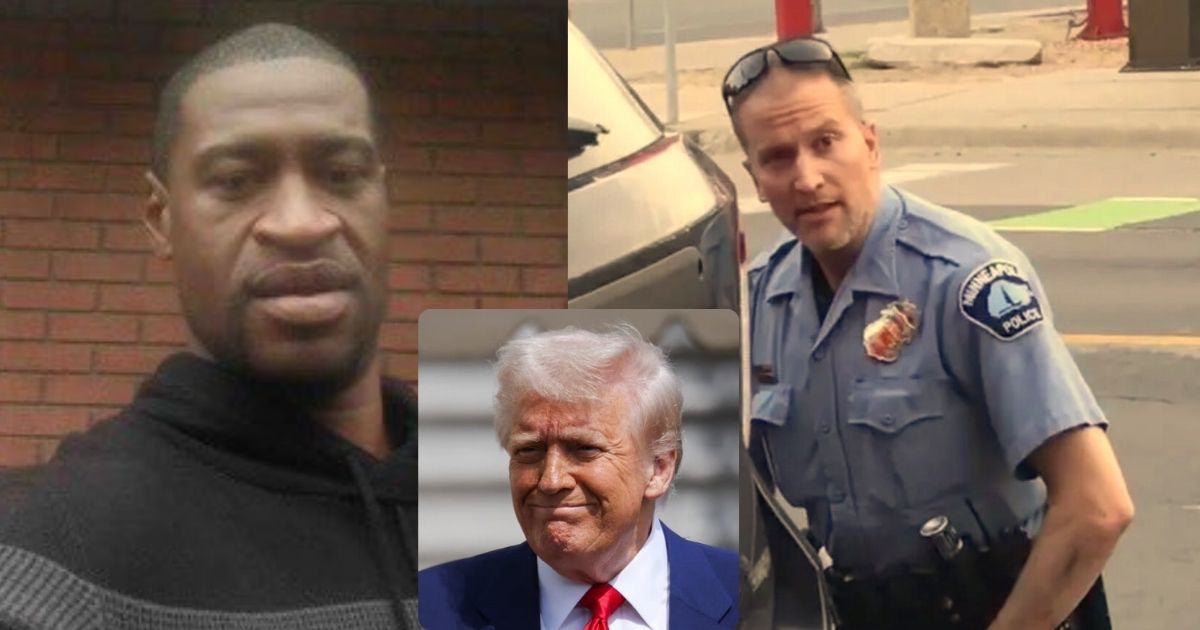It’s been five years since the death of George Floyd that sparked the nationwide movement of Black Lives Matter. This movement not only gripped the nation, but the world over against racism and bigotry.
However, fear is still there as the wounds remain unhealed. Courtney Ross was Floyd’s girlfriend. Even after 5 years, she is worried and scared of the police and the power they hold.
Courtney has now voiced renewed fears over the possibility of a presidential pardon for Derek Chauvin.
She gave an emotional interview to RadarOnline and expressed anxiety over her worries. She believes that there is an increasing pressure on President Donald Trump from his Far-Right supporters. There have been talks to grant pardon to the former Minneapolis police officer convicted of Floyd’s murder. These conversations gained traction after all the convicted people for January 6th were pardoned earlier this year.
President Donald Trump has been ambiguous on the issue and has not offered any definite response to the question. His lack of a definitive response has been a cause for concern.
“Every time it comes up, he either says he’s not considering it, or he brushes it off. That terrifies me,” Ross said. She is not alone in her concern, and it shows how the public has been perceiving the political narrative around law and order in the country.
As we approach the five year anniversary of George Floyd’s killing, some have called for President Trump to pardon Derek Chauvin. Minnesota Atty General @keithellison says, “there is no legitimate basis” for it and they just want to show “contempt for the life of George Floyd.” pic.twitter.com/KvhpUofG0V
— Omar Jimenez (@OmarJimenez) May 23, 2025
Ross believes that Trump is under mounting influence from far-right voices. Far-right and MAGA followers have cast Chauvin not as a criminal but as a political casualty.
“I don’t trust him,” she stated. “And I know that there are people whispering in his ear who want that pardon.” Her comments echo a growing concern that people in Trump’s orbit are basically running the government and he is just a mouthpiece. They also wonder if people around the president would want to frame Chauvin’s case as a symbol of overreach rather than accountability.
Derek Chauvin was convicted in state court of second-degree murder, third-degree murder, and second-degree manslaughter for the death of George Floyd, and was sentenced to 22.5 years in prison.
Trump can’t pardon state charges.
— Decoding Fox News (@DecodingFoxNews) May 15, 2025
Derek Chauvin was convicted in April 2021 of unintentional second-degree murder, third-degree murder, and second-degree manslaughter in connection with Floyd’s death. The incident was captured on video. It showed Chauvin knelt on Floyd’s neck for over nine minutes.
This ignited global protests and became a flashpoint in the struggle for racial justice. Chauvin received a 21-year federal sentence for violating Floyd’s civil rights and a 22.5-year sentence in state court. Both the sentences were to be served concurrently.
Donald Trump has publicly denied intentions to pardon Chauvin. However, he has not issued a definitive statement rejecting the idea. This uncertainty has fueled speculation on both sides of the aisle.
Conservative figure Ben Shapiro, Marjorie Taylor Greene and others have voiced support for a pardon. They have characterized Chauvin’s conviction as politically motivated. Whereas the left worries that if Chauvin is pardoned, it will set a wrong precedent and will police a free hand against the black citizens in the country.
Hope that I am wrong, but Trumps MAGA base wants him to pardon Derek Chauvin. If that happened, we could cause civil unrest.
Remember Floyd said 15 times, that he couldn’t breathe. It was murder. pic.twitter.com/A0ZJnE9vHs— Michele🌷🦜🦋🆘Save Ukraine 🇺🇦🆘🐞🐿️🌳 (@RadarResist) May 26, 2025
Legal experts have clarified that a presidential pardon would only apply to Chauvin’s federal conviction and would leave his state sentence intact.
However, Ross and other advocates emphasize that the symbolic consequences of such a move would be devastating. A pardon could be seen as a regression in the fight for police accountability and a blow to the reforms galvanized by Floyd’s death.













